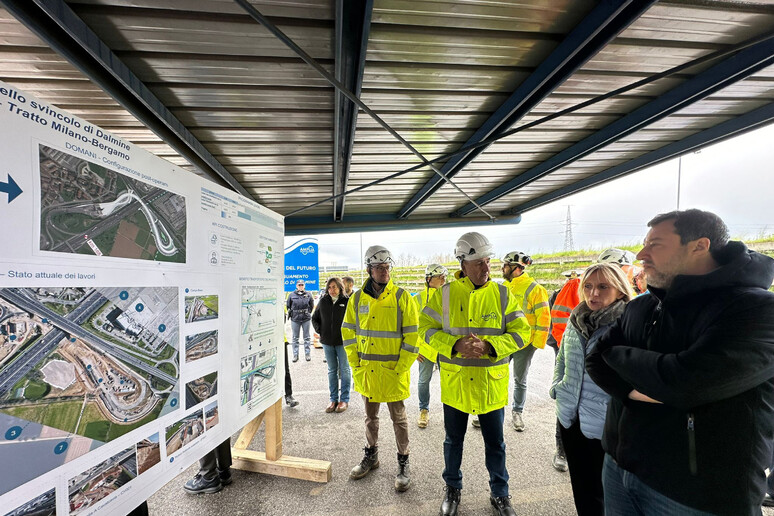The Lower House on Wednesday approved
Deputy Premier and Transport Minister Matteo Salvini's
controversial reform of the Highway Code, which critics have
said will decrease road safety rather than increase it.
The bill got the green light with 163 votes in favour and 107
against and now moves to the Senate.
"It's a beautiful day because Parliament is finally approving
the new highway code which provides for more checks, more
traffic education, more rigor," Salvini said during a visit to a
new section of the Potenza-Melfi highway.
The bill stiffens the penalties for using mobile phones at the
wheel, with driving bans of between 15 days and two months and
fines up to 1,697 euro. This can go up to a three-month ban and
a fine of 2,588 euros for repeat offenders.
People driving on the wrong side of the road or jumping red
lights also face bans.
Fines for people who park in spaces reserved for the disabled
have been increased from 330 euros to 990 euros, while those for
cars parked in bus lanes or at bus stops go from 165 to 660
euros.
It will be possible for speeding fines to go up as high as 1,084
euros and people who break the speed limit inside cities twice a
year or more face having their licence suspended for 15 to 30
days.
People with previous who are convicted for driving with a blood
alcohol levels between 0.5 and 1.5 will subsequently have a
alcohol limit of zero and will have to renew their licence by
having a medical.
The penalties for drunk driving increase by a third for these
people and they will also be obliged to drive in cars with a
breath alcohol ignition interlock device.
People caught driving under the influence of drugs face bans of
up to three years. The bill obliges motorists to respect a
distance of 1.5 metres when overtaking cyclists.
Users of e-scooters will be obliged to wear helmets, have a
number plate and get insurance, with fines of up to 400 euros
for failing to comply.
People who have just passed their driving test will not be able
to drive especially powerful cars for three years, up from one
in the previous code, and young people who drive under the
influence of alcohol or drugs will not be able to get a licence
until they are 24.
The bill also envisages road safety education programmes for
young people.
Perhaps the most controversial part of the reform regards the
limitations it puts on local authorities wanting to reduce speed
limits, such as the 30km/h limit Bologna recently adopted, seal
off areas to traffic or combat speeding via speed cameras.
Municipalities will not be able to set up new cycle paths,
pedestrian areas, limited-traffic areas and speed limits under
50 km/h until new guidelines come from the transport ministry,
which will assess each request in this regard made by the
councils.
The new code also bans councils from installing speed camera
unless approved by the prefects office and on roads where the
speed limit is under 50 km/h.
Furthermore, it will not be possible to issue motorists with
more than one speeding fine for repeated breaches that come in
quick succession.
Salvini said the aim is to stop local councils from placing
speed cameras at strategic positions to boost their coffers with
revenues from fines.
ALL RIGHTS RESERVED © Copyright ANSA











